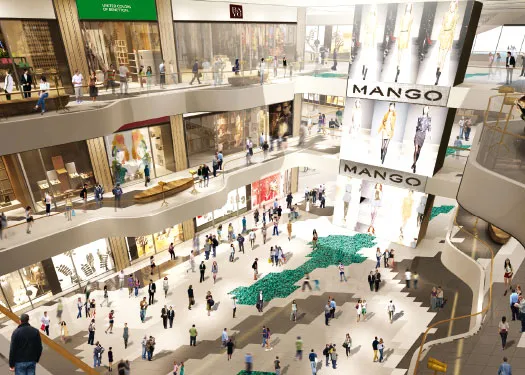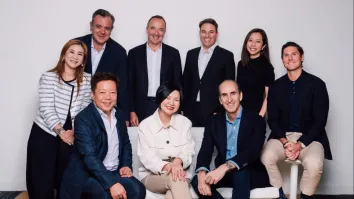
2016 RETAIL OUTLOOK: Philippine retailers remain confident of growth in 2016
During the 27th ASEAN Summit held in Kuala Lumpur, Malaysia on November 22 this year, the leaders of the 10-member group formally agreed to establish the ASEAN Economic Community (AEC), which is hoped to lead to the creation of a single market with little to no barriers to the movement of investments, goods as well as labour.
It will likely take at least another 10 years before all of the details and programmes of the AEC, such as the harmonisation of the customs and tax regime, are ironed out and put into regular operation. But already, the eventuality has forced retail companies in the Philippines to look hard and deep into their operations to determine if they will come out ahead or fall by the wayside.
They know only too well that with a radical change in the business landscape, some will evolve and adapt, while others will go the way of the extinct dinosaur.
“ASEAN integration opens up opportunities for companies wanting to participate in the regional marketplace.” — Bernie Liu, Founder and CEO, The Golden ABC Group
The Golden ABC Group, one of the largest fashion brands in the Philippines, is one company that has no intention of going the way of the flightless dodo. The group has been preparing for the coming single market, where goods from all over the region will be able to freely enter all 10-member countries, long before the AEC was formalised.
The Golden ABC Group, which operates the flagship Penshoppe chain, as well as Oxygen, Tyler, Regatta and ForMe, branched out to other countries in the region as an initial response to the threat posed by the influx of foreign brands and, eventually, as a way to take advantage of economic opportunities being opened up by integration.
With the formal establishment of the AEC that will pave the way for economic integration, Golden ABC founder and CEO Bernie Liu is even more excited about the prospects of the Philippine brand in foreign markets.
ASEAN, with a huge market of over 622 million people and a combined market worth an estimated US$2.6 trillion, was at the end of last year, the third-largest economy in Asia and the seventh largest in the world.
“ASEAN integration opens up opportunities for companies wanting to participate in the regional marketplace. Our own company is bullish given our sustained growth in the domestic market and also with the favourable patronage of our brands in the other
ASEAN territories where we are present — Indonesia, Cambodia and Vietnam,” says Liu.
Golden ABC will end this year with 602 domestic stores and 44 stores overseas, particularly in ASEAN where the buyers share the same desire for affordable, stylish and comfortable clothes and accessories with “conservative” designs, given, for instance, the large Muslim population.
At the same time, Liu says he is optimistic about local growth prospects in 2016. This is despite the entry of even more deep-pocketed foreign brands, emboldened by the successful entry of such fast-fashion brands as Zara and Mango of Spain, Uniqlo of Japan and Sweden’s H&M.
“I am optimistic about 2016 given the improved economic condition our country is experiencing, coupled with the upcoming spending related to the (national and local) elections,” he says.
Also optimistic about his retail company’s growth prospects is Edgar Sia II, chair and CEO of DoubleDragon Properties, which is aggressively expanding its CityMall chain of neighbourhood strip malls to take advantage of economic growth in the provinces.
While there are definite opportunities opened up by ASEAN integration, Sia is more interested in the prospects of making a handsome profit within the country. He believes that there is still a large room for growth, especially in the provinces, hence the investment in CityMall.
“As we all know, the evolution and shift from traditional retail to modern retail is happening in the provincial areas of our country. And our flagship CityMall is now at the forefront of that transition by providing the platform for modern retail to flourish as the shift is happening,” he says.
“We expect 2016 to be on a similar progress pace with 2015 and the big progress pace should happen in 2017-2020 as the transition will be at the peak level. This transition will have a great impact on our general consumer sector, especially in the secondary and tertiary areas of the Philippines,” Sia adds.
DoubleDragon, through subsidiary CityMall Commercial Centres, opened five CityMalls this year and the plan is to put up at least 25 more next year, making CityMall the largest branded community mall chain in the Philippines.
“We made sure that CityMall is designed and built for the future and we expect CityMall to become the minimum standard for the huge millennial population that will come on stream in the growing Philippine consumer market very soon,” says Sia.
“DoubleDragon is set to achieve its mission of accumulating a total of one million sqm of leasable space portfolio by 2020, 700,000sqm of which will be accounted for by the 100 CityMalls in the pipeline.”
Also investing in domestic growth is the Shangri-La Plaza, which operates what is reputedly the country’s most established upscale shopping and lifestyle destination.
Shangri-La Plaza is a subsidiary of Shang Properties, a property development, real estate management and investment holding company that owns Shangri-La Place, an integrated community build on an 8.6ha property in the Ortigas Centre.
According to Lala Fojas, Shangri-La Plaza’s executive vice-president and general manager, the retail landscape will be even “more exciting” for consumers but quite more challenging for the industry.
“New retail developments and concepts continued to flood the market in 2015, adding vibrancy and dynamism to the industry. This same trend will continue in 2016,” Fojas says.
One of the biggest retail developments opened this year is the SM Seaside City Cebu of SM Prime Holdings, the country’s largest retail operator.
Located on a 93,570sqm site, the mall is SM Prime’s 56th mall and the third in Cebu, the most developed urban centre outside Metro Manila.
Designed by Miami-based Arquitectonica, the SM Seaside City Cebu is one of the first developments at the South Road Properties, a prime piece of reclaimed land a few metres from Cebu’s central business district.
Developments such as these add even more competition to the market, but at the same time improves the general quality of the retail players.
“Service quality, ambience and other such intangibles will help set retailers apart from the rest of the pack,” says Fojas.
For its part, Shangri-La Plaza, which has a gross floor area of 260,000sqm with around 650 tenants, is looking forward to celebrating its 25th year in the business next year, a milestone in a business that is “fast evolving and always changing”.
“New retail developments and concepts continued to flood the market in 2015, adding vibrancy and dynamism to the industry. The same trend will continue in 2016,” Fojas adds.



















 Advertise
Advertise






